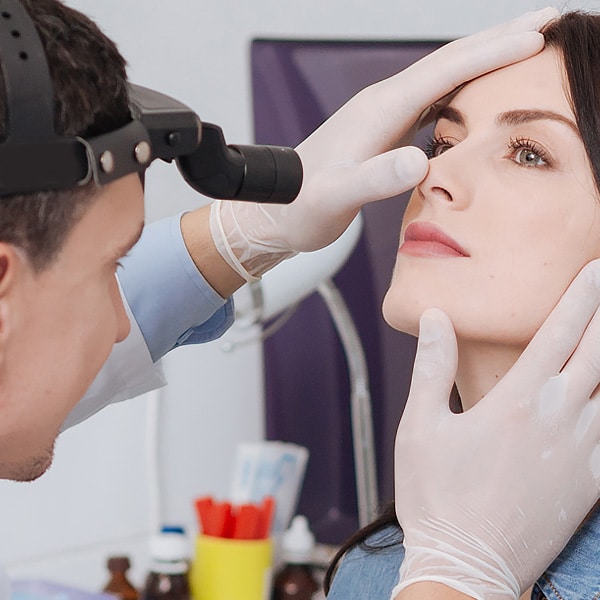Sinusitis becomes chronic when sinus pressure, infection, and inflammation last longer than three consecutive months. Typical symptoms include a stuffy nose, pain in the face, and discharge (mucus) from the nose and/or down the back of the throat. All of us have sinuses but sometimes they do not develop correctly, don’t drain properly and end up clogged with mucus/debris. Sinuses are hollow areas in the bones of the face that have a thin lining. This lining normally makes a small amount of mucous to prevent harmful particles or pathogens like bacteria and viruses from settling in our bodies. When the lining gets inflamed and/or infection builds up, more mucus develops and most people experience some pressure or discomfort.
Most often, people get a sinus infection (aka sinusitis) after catching a simple cold. The virus produces mucus and debris that may clog the sinuses. If this lasts 1-3 weeks, it is considered “acute sinusitis”. When it lasts longer than three months, this infection becomes “chronic sinusitis”. Many individuals with nasal polyps or chronically inflamed sinuses from allergies or other causes tend to get chronic sinusitis more often. For example, allergies to molds, cockroaches, dust mites (tiny insects found in dust), and animal dander (tiny flakes from animal fur, hair, or skin) can cause sinus problems because the body’s immune system “overreacts” to these things and produces more inflammation and mucus than is necessary. Allergies are just one aspect of an improper immune response to something, but other problems with your body’s immune system can lead to chronic inflammation of a variety of body parts and systems including the sinuses. Poor health, in general, can lead to frequent colds which can lead to chronic sinus infections. An injury to the facial bones or a deformity you’re born with can cause sinuses to not drain well and things get plugged up. Smoke from cigarettes and cigars is also a common irritant of the sinuses and can lead to chronic sinusitis.
Chronic sinusitis can be treated in various ways depending on the cause. If allergies or smoke are contributing to the problem, better allergy control and/or avoidance of the irritants such as smoke can make a huge difference if not solve the problem entirely. Steroids are often used to calm down the swelling and relieve pressure. Steroids can be given orally in tablets or through a nasal spray (these are not the same kind of steroids used by athletes to build muscle). If a bacterial infection is suspected, antibiotics may be prescribed to treat the infection. In cases of severe and/or persistent symptoms of chronic sinusitis, surgery may be indicated to reopen blocked nasal passages and remove polyps or mucus clogging up the nose.
